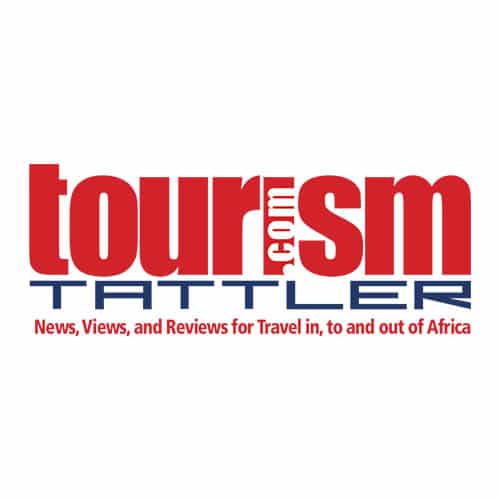Tourism Challenges in the New Year
In part one of a two part series, Dr. Peter Tarlow looks at issues that are likely to challenge the travel and tourism industry during 2015.
Now that the December holidays are past, and the parties have ended, just like almost everyone else, tourism professionals must return to a world of work and new challenges. From health issues to economic issues, from issues of social unrest to all too often substandard customer service, tourism officials face a host of problems. Some of these problems are within the tourism and travel industry’s control. Although others are not in the industry’s direct control their consequences directly or indirectly the industry and must be taken into account. Below is a summary of some of the issues with which tourism officials may have to deal during 2015.
HEALTH ISSUES
Although it is still too early to note what the long range impact of Ebola will be on the tourism industry, tourism professionals would be wise to consider this disease not as a single event but rather as symbolic of any potential pandemic. There is a clear potential interrelationship between travel and the spread of a pandemic. The Ebola case should put the tourism industry on-notice as this is the first time in many decades when banning travel from one part of the world to another has been seriously discussed. Tourism officials must not only worry about the spread of disease but also a disease’s economic impact.
SECURITY ISSUES
The rise of ISIS and other radical terrorism groups posses a major threat to tourism. Not only is the tourism industry security sensitive, but major disruptions tend to have longer life spans than the news cycle at large. The coming year will present tourism security specialists with any number of challenges. Among these are:
• Terrorism has not diminished but rather mutated. Single cell or lone wolf terrorism will increase their threat to the tourism industry and will be harder than ever to detect.
• Terrorists have become social media savvy. Terrorism is no longer just about acts of violence, instead terrorists have learned how to create media centric violence. This means that terrorists have learned how to adapt the media to their own needs.
• Cyber crimes will continue to haunt the tourism industry. Cyber crimes, once relatively rare in tourism, have become a major issues in the world of tourism. The fact that credit cards may be stolen and used without permission means that both public and private security officials must become ever more mindful of this new threat. Many areas of tourism have adopted cash-free policies and if travellers are now afraid to use their credit cards or fear identity theft then the system is placed in jeopardy.
• Cyber attacks on large corporations and privacy issues may become the norm. Until recently the idea of a cyber-war seemed to be more science fiction than reality. Now large corporations such as hotel chains and airlines may be vulnerable to attack. A cyber attack on the airline industries computers would be more devastating than the attacks of September 11 and could bring airlines to a complete halt. The fact that airlines are now equipped with Wi-Fi while in flight is both a convenience and a threat.
Tourism Policing Forces (TOPPs) around the world will be more needed than ever. Currently in much of the world and especially in the United States police departments are facing an ever more hostile public. TOPPs units can go a long way to changing the image of the police and this positive blow-back may help all aspects of law enforcement. If security personnel can convince marketers of the importance of TOPPs units then these forces may help to create a dent in international crimes against tourists. If, however, these forces remain underfunded then additional problems may occur. Tourism police will need to have sub-specialties that range from issues of fraud to cyber crimes, from issues of petty theft to terrorism, from issues of terrorism to crowd control. The key will be that tourism can no longer afford to have law and security provider generalists, but rather will need specialists in multiple areas.
ECONOMIC ISSUES
Although in some parts of the world, such as the United States, the economy appears to be improving or at least not getting worse, this trend is not true for other parts of the world. In 2015 Europe may well enter into another recession and this may mean that Europeans may have to vacation less, and stay closer to home. Another worry is the viability of Europe’s currency, the euro. A weaker euro or basket of currencies may make travel to Europe less expensive, but it also may mean that Europeans may have to cut our or shorten their vacation plans. Tourism professionals would do well to consider:
• The cost of credit. Because so much of the middle class’ purchases for expendable items are dependent on credit, it is essential to track the trends in credit. If interest rates rise, then middle class purchases become more expensive. In some places there is now the threat of deflation. Deflation tends to encourage people to wait for lower prices and deflationary cycles can become self-fulfilling prophecies.
• As in past years, the middle class will remain the heart of the tourism industry. The middle class must live on some form of budget. That means that if there is a major rise in taxes or other required services, the middle class may tend to hold back on what it considers luxury items. On the other hand, during periods of deflation, the middle class often waits for cheaper prices and creates a marketer’s nightmare. Tourism is highly sensitive to economic uncertainty and the more turbulent the economy, the more precise the marketing needs to be.
• The New Year may bring a great many undulations within the financial industries and these ups and downs will impact tourism. When the stock markets tend to rise, many people feel wealthier and are more willing to spend money. The opposite is true of a falling market. Note that the psychological macro impact is not connected to an individual’s personal wealth. Members of the middle class tend to spend money as influenced by macro rather than micro trends.
CUSTOMER SERVICE
The travelling public is learning how to demand more and is seeking alternatives to those businesses that are providing poor customer service. The past year saw new lows in many areas of customer service within the travel industry. Although airlines still lead the way in poor customer service, other parts of the tourism industry need to reconsider the quality of the service that they provide. A major sore point with travellers is the fact that there is a charge for minimal service items. Hotels that charge for water or Internet service are not winning new friends. The consistent “we charge for everything” policy of many tourism service providers has created a sense among many that the hospitality industry is more hostile than hospitable.
About the Author: Dr. Peter E. Tarlow is the President of T&M, a founder of the Texas chapter of TTRA and a popular author and speaker on tourism. Tarlow is a specialist in the areas of sociology of tourism, economic development, tourism safety and security. Tarlow speaks at governors’ and state conferences on tourism and conducts seminars throughout the world and for numerous agencies and universities.
For more information visit www.tourismandmore.com or to subscribe to his ‘Tourism Tidbits’ newsletter email ptarlow@tourismandmore.com








